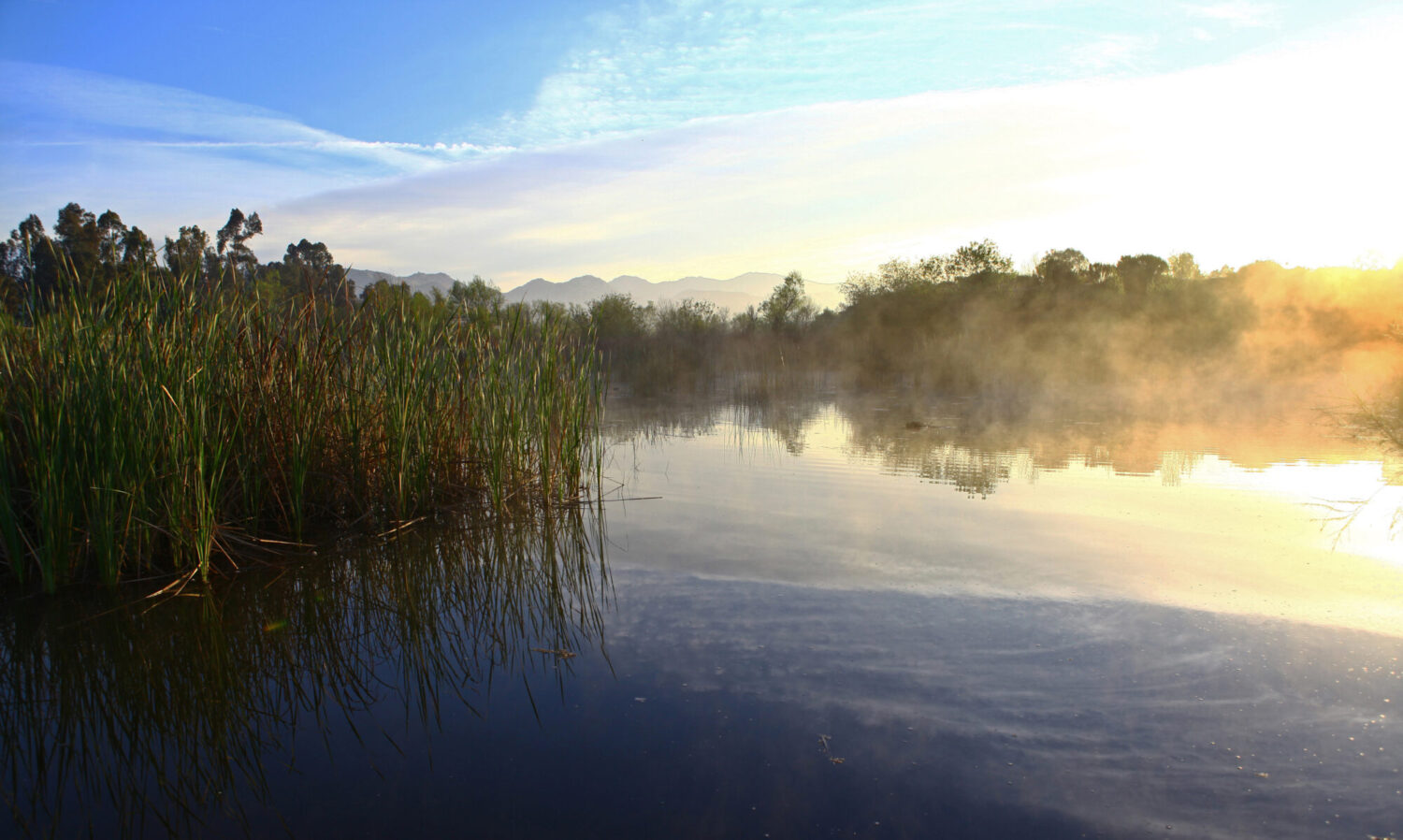
January is traditionally a time to set goals for the upcoming year – and California Coastkeeper Alliance has big plans for 2023! We made significant achievements in 2022, meaning it is time for some new, exciting campaigns! As always, we are laser-focused on achieving clean water solutions that California so desperately needs to provide swimmable, fishable and drinkable waters for all Californians. Here are our top priorities for the coming year:
- Secure minimum surface flow standards and prevent water theft to protect aquatic life and preserve the cultural practices tied to the health of our rivers. Throughout California, threatened and endangered fish struggle to survive in rivers that are over-diverted, dammed, and otherwise modified. The overarching threat of climate change only intensifies the challenges these species face by decreasing streamflow, increasing water temperature, and shifting habitat. Illegal surface water diversions and excessive groundwater pumping leave many California streams and rivers completely dry, or with water levels that are inadequate to sustain fish, wildlife, and recreation. Our state’s failure to recognize and protect water flows needed for healthy rivers and fish through the water rights permit process has hastened the over-appropriation of water from rivers and streams and has resulted in the demise of endangered species such as Coho and Chinook salmon and steelhead trout.
- Address racial inequality in California’s water policies to ensure all Californians – not just affluent communities – have access to swimmable, fishable, and drinkable waterways.
- Dismantle racism in California’s water rights system – Historically, water rights were given to white males who staked a claim to the land around waterways and put the water to use (first in time, first in right). Today, those pre-1914 water rights holders have seemingly unlimited access to water, leaving tribal communities and communities of color without water.
- Ensure equitable water rates for all Californians – Every human being has the right to safe, clean, affordable, and accessible water, but too many Californians are left without it. When utility pricing structures are poorly built, low-income households who conserve the most water subsidize the water costs for inefficient homes and businesses. These regressive rates punish conservation and are inherently inequitable. Water rates present an important opportunity within California’s water system to address both affordability and equity.
- Provide all Californians with access to safely recreate in inland waterways – All Californians have the right to access our waterways. For decades, the Coastal Commission has ensured public access to the coastline and our beaches, yet the same attention to public access is not provided to inland waterways. Many underserved communities and communities of color cannot access California’s beaches, and in summer months, rely on inland waterways to stay cool in the sweltering sun. Unfortunately, many inland waterways are difficult to access, and little if any monitoring and notification is available to communicate whether it’s safe to swim.
- Provide environmental justice and tribal communities with representation on the state’s Water Boards – Currently, there are no seats reserved on the Water Boards for a member from an environmental justice or tribal community. As a result, some water quality decisions are made at the state and local level without environmental justice and tribal input. Without a voice at the decision-making table, underserved communities risk being left out of meaningful cleanup projects or potentially harmed by water projects that would have a disproportionate, negative impact on the surrounding community.
- Protect the water quality of California’s most pristine ocean areas. Almost 50 years ago, the state set water quality protections prohibiting polluted runoff into the most pristine ocean areas off the California coast.In 2012, the state gave an exemption to allow stormwater runoff into these areas if certain conditions were met. Now ten years after the exemptions were granted, we are witnessing widespread non-compliance. It is time for those polluting our ocean to be held accountable.
- Establish the nation’s first Direct Potable Reuse regulations. In 2017, CCKA co-sponsored Assembly Bill 574 to require the state to adopt the nation’s first regulations allowing recycled water to be delivered straight to your tap. Those regulations will be considered by the State Water Board this year, providing every community the opportunity to recycle their wastewater into drinkable water instead of wastefully dumping it to the ocean.
- Establish a statewide Commercial Stormwater Permit. Commercial facilities are currently unregulated under California’s stormwater program, leaving an unfair playing field for other responsible parties like industrial and municipal stormwater permittees. Commercial sites amass pollution from every car that uses their parking lots and are major contributors of pollutants such as heavy metals (copper, zinc, lead), oil and grease, yet it is the local government’s responsibility to address their pollution. CCKA is working to establish a statewide Commercial, Industrial, and Institutional (CII) Stormwater Permit to require currently unregulated commercial properties to capture stormwater, eliminate pollution, and create a source of funding for green infrastructure.
- Adopt the first new water quality protections for a Marine Protected Area in 40 years. The state has made it a priority to adopt water quality protections for all Marine Protected Areas (MPAs), but it has been so long since new protections have been adopted that CCKA is leading the charge to develop a test-case. CCKA is advocating that the Water Boards nominate and adopt the Point Sur MPA as the first with water quality protections in over 40 years.
- Protect instream flows from groundwater overdraft. California fails to recognize groundwater and surface waters as interconnected. Last year, CCKA secured a moratorium on new groundwater well permits in Sonoma County until the County develops a plan to safely balance groundwater and the surface flows of the Russian River. This year, we will ensure that plan is sufficient to protect the Russian River while identifying other regions in California that would benefit from similar action.
- Save California salmon and steelhead from 6PPD exposure caused by tire-wear from our highways. 6PPD is a chemical used in most if not all motor vehicle tires. Once tire particles coated in this chemical wash into the environment, 6PPD and its reaction product 6PPD-q, interact with salmonids and compromise their blood-brain barriers, killing and severely impairing exposed fish within hours. Due to the incredible ubiquity and toxicity of this chemical, it is imperative that California control both the source and pollution pathways for 6PPD and 6PPD-q.
- Support the State Water Board as it adopts regulations to “make conservation a way of life.” As aridification becomesCalifornia’s “new normal” we must all do our part to conserve water. Our changing climate requires Californians to move beyond temporary emergency drought measures and adopt permanent changes to use water more wisely and prepare for more frequent and persistent periods of limited water supply.
- Host a Bacteria Summit that is inclusive of the communities with waters polluted by bacteria making it unsafe to swim, fish, and perform cultural practices. The State Water Board is considering next steps to address bacteria pollution coming from urban communities and polluting our waterways. CCKA is co-hosting a Bacteria Summit that is inclusive of tribal and environmental justice communities that have historically been forgotten when developing bacteria regulations.

Executive Director Sean Bothwell leads CCKA’s initiatives to fight for swimmable, fishable, and drinkable waters for all Californians.



